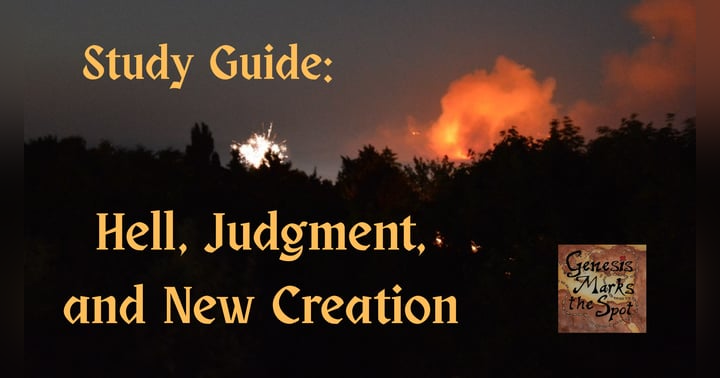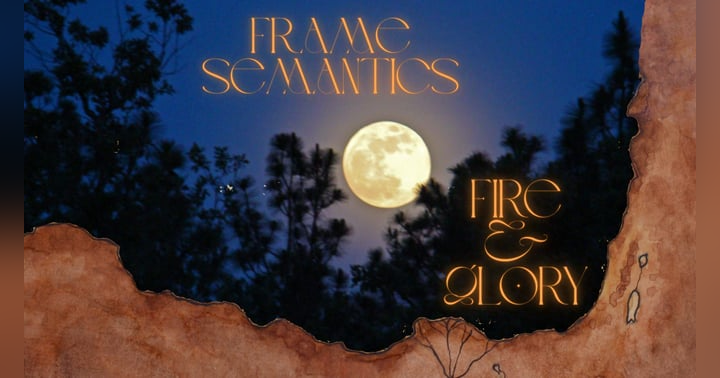Was Adam Historical–and Why Does It Matter?

So thought I’d write up a few thoughts about this, because Zach Miller over at What Your Pastor Didn’t Tell You put out what I thought was a nice overview of whether or not Jesus believed in a “historical Adam”--and whether or not that really actually matters.
I can hear the gasps now.
Of course what Jesus thought about everything should guide our interpretive hermeneutics, right? Well, I see your potential point there, yes. But Jesus, even as God come to earth, was a historically-situated person. As such, he worked within the situation that he was in…that’s kinda part of the point, honestly.
He entered the first-century Jewish world, so naturally, we should expect him to operate with first-century Jewish ideas. Revolutionary, I know.
Jesus wasn’t preemptively countering 21st-century apologetics. He wasn’t anticipating YouTube debates on macroevolution or the Genealogical Adam. He spoke into his world—and we should read him in light of that.
Why am I bringing this up?
Because obviously, I’m desperate to convince you of evolution. That’s my dark agenda.
Oh—wait, no. That’s not it.
I know some of you will assume otherwise. For a certain subset of readers, they believe that the only reason anyone would even touch this topic is to push evolution, undermine the faith, or win points with the academy. But, sorry to disappoint, that’s not my aim. I’m not even trying to get you to agree. I’m not staking a dogmatic position here.
I’m addressing it because one side in the conversation often refuses to consider any alternatives. The “Nope. Not an option. La la la, I’m not listening” crowd. That’s fine—they’re free to think that. But that dismissiveness suggests to me that the conversation needs more oxygen. Not certainty—just space.
And there’s a particular point that I see that might benefit from looking at this question and its possibilities.
Literalism vs. Allegorical Reading
It strikes me that this question might help to bridge the gap of understanding between such things as “literal” interpretation (whatever that means) and/or “grammatical-historical” interpretation (also, whatever that means) and “allegorical” interpretation. (I talked a little bit about allegorical interpretation not too long ago when I was looking through the historical interpretations of Genesis 6.)
For a long time, I assumed the Bible had to be exact in its historical claims. Literal six-day creation, literal Adam, literal everything. Heaven forbid there be fiction or allegory—unless we were dragged into it kicking and screaming, at which point we mutter “metaphor” like it’s a concession to liberalism. How dare the writers of the Bible put something unreal in their writing! (Obviously I had a mistaken understanding of what metaphor even is.)
To a large degree, that type of interpretation insisted that I be able to read the Bible in my context and understand it.
You know what that led to, for me? I didn’t believe in the Trinity. I couldn’t see how it was there, and sorry, even today, I’m not a big fan of quite a bit of the field of Trinitarian apologetics because it’s just not convincing when it tries to understand the text from a modern, “literal” perspective. That’s not good enough.
Then, along came biblical theology. Reading the Bible in context. What a breath of fresh air that allowed me to understand things like the Trinity, for instance. You know, minor doctrines like that.
I came to think, okay, now I’ve got it! This is how you read Scripture, and the only way you can read Scripture! Cool.
The problem was…hmm, oh dear. Early church fathers started busting that paradigm right and left for me. Wait a second, they were interpreting things allegorically!! They can’t do that! That’s not how we do exegesis! Don’t they understand context???
Except…who am I to say that? This is historical theology. And it’s Christological. Am I really going to tell them that, hey, you shouldn’t be reading the Scriptures with a Christological lens?
What about Christ as the "Last Adam"?
Maybe you think that all that is beside the point here about the historical Adam, because you’re telling me that if Adam isn’t historical, then people will then think Christ isn’t. How can Christ be the last Adam if Adam never existed??
Well…easy, honestly. Because the point of Christ being the last Adam is a typological one. The theological weight isn’t on a literal genetic chain of custody. We’re not “in Christ” biologically, so why would we need to be biologically descended from Adam to share in sin and death?
Romans 5 is the usual battleground here, but original sin as inherited guilt isn’t actually laid out in Scripture. What we have instead is story. Scripture uses things like typology very heavily. The Bible presents itself in a beautiful literary design that shows how humanity repeats its failures—and how Christ reverses the pattern.
We don’t need to flatten the story to a biological blueprint. We need to understand how the narrative is told the way it is.
That’s a real story, a real history. But we’re mistaken if we think it has to correspond to our modern thinking.
“When Do the Genealogies Become Literal?”
Here’s a (paraphrased) question someone posed in response to Zach’s video:
“At what point in the genealogies did the ‘hypothetical Adam’ have ‘literal’ children? How many ‘hypothetical’ generations passed before the names became historical?”
It’s a good question, but I think it misunderstands what genealogies are for.
Are biblical genealogies careful, exhaustive records of biological descent? Or are they narrative tools—story frameworks that shape identity and meaning?
The gaps in genealogies, the inclusion of people-groups and not just individuals, the clear etiological function of many names—none of that supports a modern “family tree” model. Ancient writers used genealogies to anchor people in story and meaning, not bloodline precision. (See God of the Gaps if you want to chase that rabbit.)
If Genesis 1–11 was finalized or redacted during the exile, that tells you something too: the compilers weren’t bothered when they shaped genealogies to fit a narrative purpose. That’s not how we think today, but it’s how many cultures have thought—including even some more modern tribal societies which adopt new stories because they fit their identity. Their goal isn’t empirical documentation—it is story-shaped peoplehood, which is exactly how we see Scripture mesh with the people of God in history. Who you are is intimately related to the stories that come before you.
So...Does It Matter?
Yes. But maybe not in the way you think.
The Bible is about the people of God finding their identity in the story of God working in history. But “history” in that world didn’t always mean what we moderns mean by it. That’s not a downgrade. That’s a different mode of telling truth.
What matters most is the meaning. Scripture is shaped by allegory, typology, and theological design—not just chronology. That opens up questions about narrative, embodiment, and Christology. The figure of Adam, like so much in the biblical story, is doing something—pointing beyond himself.
So here’s what it doesn’t mean:
That if Adam isn’t historical in a modern sense, Christ isn’t either. That’s a false equation.
Christ is historical. The Gospels are grounded in real events. But they’re also shaped by story, symbol, and theological coherence. The same applies to Adam. It’s not about whether Adam “happened”—it’s about what Adam means.
So why does the debate get so heated?
Because for many, Adam has become a stand-in for deeper fears: the erosion of biblical authority, the encroachment of secular science, or the idea that if one thing is open to reinterpretation, everything might be. But we have to ask—what are we really trying to protect? A literal reading of genealogies, or the incarnate Word who redefines humanity? And is God really so limited that he needs to be protected by us, anyway? What...God can use history, but he can’t use allegory??
Christ isn’t just the “last Adam” in a theological formula—he recasts the whole human story. In him, we aren’t tracing Adam’s biology; we’re stepping into a new creation. And if we let the biblical story lead, instead of forcing it to conform to modern categories, we might discover that the question of Adam’s historicity isn’t a threat—it’s an invitation. An invitation to trust the deeper design.
Not less real. Just centered on meaning and purpose.
EDIT: Check out the follow-up post to this one: On Allegory and Accommodation: Adam and the gods of the Nations








